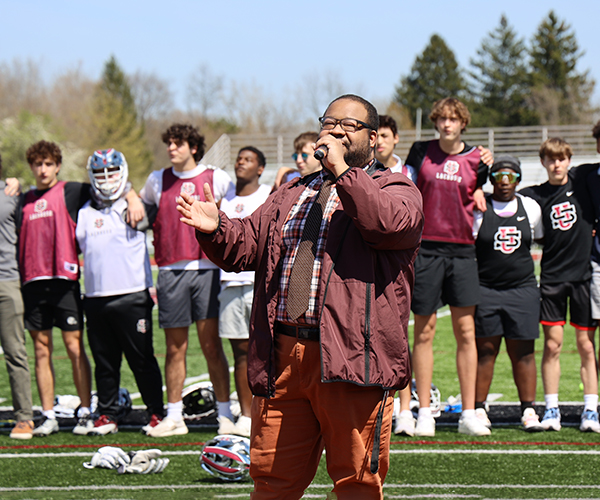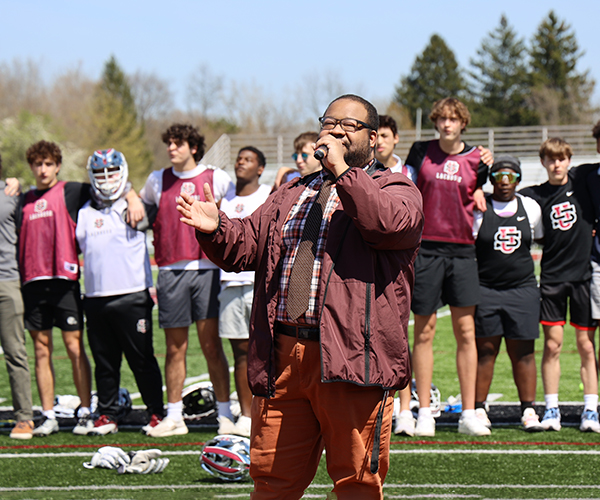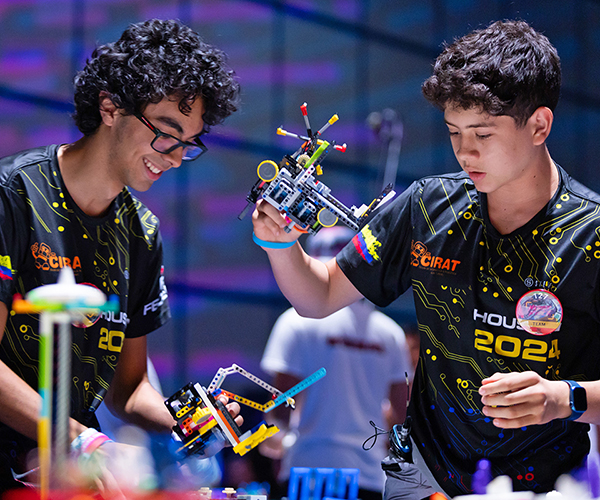On a steamy July morning, all is calm in the Flauto household in Newbury. Everyone is tuned to electronics, giving mom Maria a few minutes of quiet despite the six kids in the house — her own four plus two visiting friends.
Twelve-year-old Sarah and Emily, 10, play with two laptops alongside another friend at the kitchen table, while their younger brothers hang out in the living room. First-grader Dominic and his friend sprawl on the floor in front of another laptop, while 2-year-old Michael watches TV nearby.
The scene would be even more perfect if the five older kids were playing math games on the laptops or watching an educational documentary on TV.
But, instead, they're just having fun.
And that's exactly the way it should be in the summer, say some educational experts. Others make the case for keeping skills fresh with at least a little bit of schoolwork squeezed into each long summer day.
Regardless of how your kids spent their summer, it's time for kids and parents to face the impending start of another school year. And, if your child had challenges last year, you may want to try out a few new strategies for improvement.
We asked the experts: What if my kid ...
Hasn't cracked a book all summer?
Today, you'd be hard-pressed to find a school system that doesn't require summer reading at all grade levels. So it's not just your kid who has procrastinated.
"I can speak to this as a dad and an administrator," says Bruce Wilhelm, head of University School's Shaker Campus for grades K-8. "About 20 percent [of early middle schoolers] have read throughout the summer. The other 80 percent have put it off."
The good news in waiting until August is that the reading will be fresher when your child returns to the classroom.
"If your child doesn't like reading, I would read it aloud to them or get an audio version and listen to it as a family on road trips," says Sharon Baker, head of Hathaway Brown School's middle school in Shaker Heights. Even older teens still like listening to stories, she adds.
And, it's not too late to visit the library for book suggestions on topics that interest your child. Sometimes it takes just the right book to spark a child's interest in reading.
Is bright, but bored in school?
"The last thing you want is for a really smart kid to get bored, because they'll lose their drive to do great things," says Dr. Sara Bohac, a Cleveland Clinic pediatrician at Chesterland Pediatrics.
The first step is to wait to get the school year started, because a new teacher could mean your child is more engaged and challenged. But, Bohac cautions, don't wait too long because severe boredom can spiral into dropping grades.
Then, talk to the teacher and the school counselor about programs the school has for gifted students. Some schools allow children to attend just some classes, such as a math class, at a higher grade level. High school students may be able to take college classes through a postsecondary program.
Outside the classroom, supplement school with challenging extracurricular activities focused around your child's passion such as Math Olympiad or the National Spelling Bee, Bohac suggests.
If that still isn't enough, you may need to seek out a more appropriate learning environment, suggests Gordon Maas, head of school at Ruffing Montessori in Cleveland Heights. Maas says Northeast Ohio is one of the best areas in the country for a variety of schools that take different approaches to education.
Doesn't make friends easily?
Whether your child is shy or anxious, friendships are an important part of growing up. But just how many friends should your child have?
"As a physician, I have to ask, 'Whose issue is this?' " says Dr. Margaret Stager, who specializes in adolescent medicine at MetroHealth System. "Is it mom worried that she needs to have more friends or is it a legitimate concern? How does your child feel about it?"
Having one or two good friends is enough for some children. If a child is distressed over not having friends, however, parents can help younger children, but need to proceed cautiously with teens, Stager says.
Likewise, age plays an important role in the types of friendships your child will have. "Developmentally, children in first- and second-grade are still about parallel play. They're not establishing friendships yet. They're trying on friendships," says Mindy Byrnes, a second-grade teacher and co-chair of the math department at Laurel School in Shaker Heights.
In the waning days of summer, invite other kids out for ice cream or on a bike ride. "Casual is better than structured," Stager says.
But for middle school kids and beyond "the last thing they want to do is to be seen with their mom," Stager says. So look for creative ways to have your child meet kids outside of school by volunteering in the community or getting involved in extracurricular activities. Most high schools start sports practices in August and some teams of less popular sports, such as field hockey, may still need players. But, make sure your teen is on board and wants to make new friends.
And take consolation in the fact that not being popular in middle school may actually be a good thing, says Hathaway Brown's Baker. A study at the University of Virginia found kids who were popular at 13 struggled by age 23 with issues including substance abuse and failed relationships. "So the kids who are hanging out with their one or two friends on a Friday night, eating popcorn and playing a board game, that's what they should be doing," she adds.
Isn't good at sports?
Just like with the child who doesn't make friends easily, the biggest question here is whether your child's lack of athletic ability troubles you or your kid.
"If a kid isn't bothered by the fact that they're not good at sports, and they're not being teased, then let them play sports. They'll have a good time, and they'll have fun," says Dr. Sara Lee, a pediatrician at University Hospitals Rainbow Babies and Children's Hospital. "If it's bothering the child, then you need to find out what's bothering them. Are they being made fun of, or is it just an anxious, perfectionist type of child and they feel they should be doing better?"
First, it's important to remember that children develop at different rates, says Lee. That includes coordination as well as size. So if your son is the smallest on the peewee football team, he may still grow. Or, you could try another sport, such as soccer where light and fast might be an advantage or wrestling that matches sizes.
"If they're just not great at athletics, it's still important that they find some type of exercise that they like," says Cleveland Clinic's Bohac. "With obesity rising in America, you want to make sure they get exercise. There's still plenty of noncompetitive things that are fun to do like karate, cycling, swimming, yoga — things that get the heart rate going."
Is great at sports, but the team is bad?
Win or lose, being on a team provides kids with multiple life benefits. "You learn how to be on a team," says MetroHealth's Stager. "You learn to interact. You learn to take directions from someone other than your parents. You're working toward a common goal."
But what if your child is vocal about his losing team?
"Any time they come forward with a beef or a concern, I tell parents, 'Hey, just sit down and listen,' " Stager says. "Just be the mirror or the sounding board, mirroring back what they say."
But, she adds, it's important to tell them that the purpose of being on the team is to play — not to always win. And once they've committed to a team, they need to see that through to the end of the season. Keeping commitments is a valuable lesson regardless of the team's record. Then, next year they can join another team in another league.
As the head of a boys' school, University School's Wilhelm cautions parents against pushing young kids to specialize too soon in a sport. Various sports develop different motor skills and can complement each other.
Competitive and travel leagues also come with a price — both in financial and time commitments, so they should be discussed as a family. Wilhelm says despite playing competitive college soccer himself and having three talented athletic sons, he never let them play in leagues that would drain family time. "We have dinner together every night," he says. "That's the No. 1 importance to our family."
Has spent all summer playing video games?
Just as in the Flauto household, computer games can be a lifesaver to quiet your children or give them something to do on a rainy day. Maria Flauto limits their screen time and balances activities such as trips to the library, museum or pool into their day.
But some kids have trouble shutting devices off, and too many hours in front of a screen can lead to health issues, such as obesity, cautions doctors. The American Academy of Pediatricians now recommends that any Internet-connected device be removed from children's and teens' rooms at night so they can get uninterrupted sleep.
"Kids are not self-regulating, so there's a lot of sleep disorders, and with sleep disorders comes a lot of problems such as weight gain, anxiety, depression and stress," says MetroHealth's Stager.
Stager suggests a sit-down with your kids about the media rules during the school year, including cellphones. "I strongly recommend writing the rules down where everyone can see them, because teens have a wonderful way of forgetting," she adds.
So, start turning devices off now and enjoy the remaining days of summer.
Is unorganized?
"All boys are unorganized," says Wilhelm. And likely many girls are too.
While there's no quick solution, Wilhelm suggests giving your child one or two tasks at home — making the bed, for example. The routine can help create a more organized mind-set. "Kids who have trouble with multisteps get flustered and unorganized," he says. "So those little tasks can really benefit them in the long run."
"Organization can be taught," adds Rainbow's Lee. "Use a reward system, so they get rewarded for everything being completed."
And, don't expect too much too soon. It can take until early adolescence before many kids develop organizational skills, Lee says.
"But if they're always disorganized or forgetful, then you might want to see your pediatrician," she says. Children with attention deficit disorder or attention deficit hyperactivity disorder particularly tend to be disorganized.
Is rambunctious and can't sit still?
How do you know if you have an energetic child or one with a medical concern like ADHD? "It's not situational," says MetroHealth's Stager. "It happens both at home and at school. You'll hear it from everyone who interacts with your child: He's not paying attention. He's looking out the window. He can't sit still."
Usually ADD or ADHD starts in third- to sixth-grade, so an older teen who suddenly can't sit still likely has something else going on, such as consuming too much caffeine.
For the energetic child, Cleveland Clinic's Bohac suggests allowing a child to play or do sports for a half-hour after school before sitting down again to do homework. But when your child's energy level becomes an issue at school, that's when you should take him or her to the pediatrician for an evaluation.
Is involved in too many activities?
Cleveland Clinic's Bohac has dubbed teens in this group "The Renaissance Children."
"They take music. They take art. They play three sports," Bohac says. "And that's fine for some people, but it's exhausting for children."
And, it can be exhausting for parents — creating stress in the family when one parent has to drive three children to multiple activities.
Older children often get over-involved trying to build a resume for college admissions. It's important to limit children, especially the younger they are.
"Rotating seasons allows kids to do all of their passions, but not all at the same time," says Hathaway Brown's Baker. "One or two things at a time allows them to throw themselves into the passion without costing family time or friendship time or just downtime. Downtime is the time for them to just recharge and relax and just be kids."
* * * *
So in the final weeks of summer, it's important to spend some family time together, all the experts agree.
"You just want to keep the magic of summer alive as long as possible," Wilhelm says.
What I've Learned ...
About Offering Different Sports at School
Gordon Maas
Head of school, Ruffing Montessori
We're not a highly competitive place.
We have the avenues to build skills. All of our sports are very egalitarian. Anybody can play, the girls play, the boys play.
We do have a girls basketball team.
Ultimate Frisbee is something we formed five years ago. That's been a great experience for our kids.
Archery is something we started six years ago. As you're using the bow and the arrow it has a lot of ability to center yourself: How you use the bow and how you pull the string and how you let it go from a certain place.
Brain hemispheric coordination, that's really what it is.
We compete every year in Columbus.
We have badminton too.
Some of our kids are playing on our teams, and they're doing great.
About Buying School Supplies
Maria Flauto
Mother of four, ages 2 to 12
Our school [St. Helen's in Newbury], has something they call the School Kit — everything they need is on their desk in a box for orientation day. I've done that before, and it's wonderful, but it's expensive.
Who needs a new ruler every year? New erasers? New pencil cases?
Their supply lists are so long. I get overwhelmed. Is this the right notebook that you need? Is this the right pen?
I'm going to take three different days and take one of them at a time. I never get to do anything individually with them. It will be nice.
We will have lunch. Definitely ice cream.
I like to be that mom who's on top of things.
I want them to learn from me, not from their friends. They will learn from their friends. They won't learn the right thing, maybe.
I want to make sure they know the right thing.
About Why Teens Should Volunteer
Margaret Stager
Physician, MetroHealth System
When a parent says, "Don't do that" or "Stay away from that," boy does that teenager gravitate toward it.
You need to soft-shoe it a bit.
I really like it when I see teens do at least one volunteer activity — something that's outside of themselves. It opens a world beyond their absorption in their friends or their school.
If they're hanging with the wrong crowd, it gives them an out. It's challenging for a teenager to say, "No thanks, I don't want to go behind the school and smoke." But if the teenager says, "I can't today, I'm working at the dog shelter," or "My mom is making me go to this stupid bake sale," that is so much easier for them to say.
If they're the one causing the trouble, it allows that young person to redefine internally who they are. They can re-experience themselves as a different person. You're not going to be a bully in a nursing home.
About Helping with Math
Mindy Byrnes
Teacher and math co-chair, Laurel School and mom of three
You want to help your child develop a strong numbers sense. Some kids are born with it, some really have to work at it.
Understand that the number five is made up of two and three or four and one.
You want them memorizing math facts. Turn it into a game and make it fun.
We have a math fact path going to bed. I put down flashcards in a pathway that goes from our dining room, around the table, up the stairs. We time them. We see if they can beat their time. If they miss one, Oops! They have to go back to the end and start over.
It's very empowering for them to see that not everybody sees math in the same way.
Once you make math facts automatic, you can focus on the deeper-level concepts of math.
Math is so much more than six plus four.
When you are dealing with a child with math anxiety, never ever say, "I'm terrible at math." We would never tell a child, "I'm terrible at reading."
Learning along with your child is an excellent strategy. Show them that learning is a lifelong opportunity.



